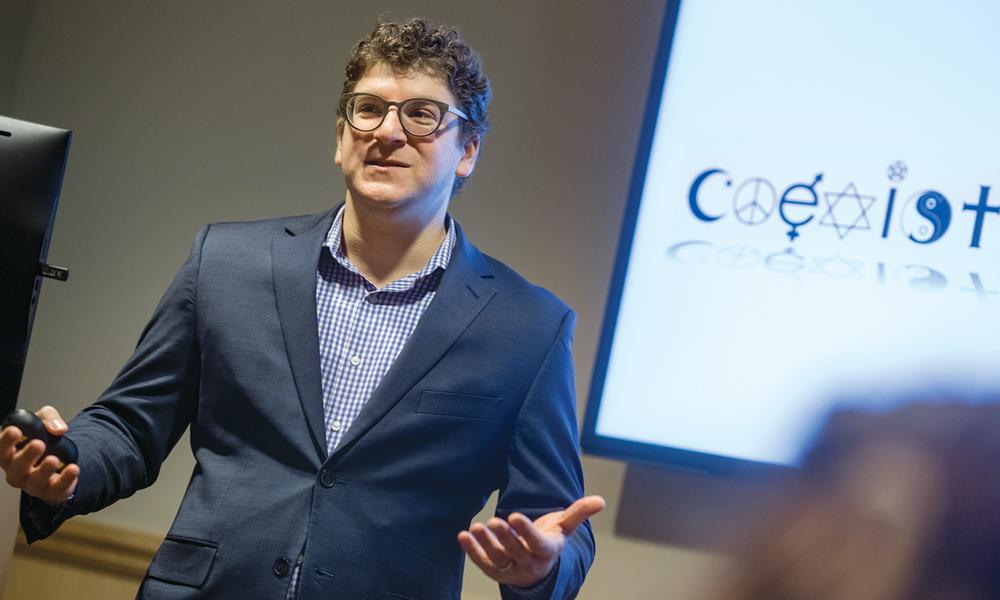Indoctrination or insight?
Nation and World
SUMMARY: College students with politically different viewpoints work together in the community, share meals together and collaborate on classroom projects. What happens to their political worldviews as a result?
From the Spring/Summer 2018 print issue of Madison
A JMU faculty member is part of a team of researchers who are challenging the notion that liberal professors on college campuses frequently indoctrinate students to adopt their beliefs. Instead, their study results indicate that college serves to broaden students' views, political and otherwise.
"We say college has these amazing and wonderful benefits for students and it usually does," says JMU strategic leadership studies professor Benjamin Selznick. "We are trying to find better and quantifiable ways to demonstrate these outcomes."
Selznick has been participating in research led by Matthew Mayhew of The Ohio State University and Alyssa Rockenbach of North Carolina State University, partnering with Interfaith Youth Core. The Interfaith Diversity Experiences and Attitudes Longitudinal Survey being conducted at 122 institutions nationwide (JMU is not among the survey sample) seeks to better understand student encounters with religious, spiritual and worldview diversity across the spectrum of American higher education.
The study surveys students at three different points in their academic careers: the beginning of their first year, the end of their first year and during their senior year.
"My work focuses on quantitative approaches to student development," says Selznick. "The first year of college represents a time of great development for college students, not merely in subject matter learning, but also moral reasoning, attitudes and values development.
"Some students enter college coming from very diverse environments," he says. "Others have had limited exposure to alternative viewpoints. When we survey the same students at the beginning and end of their first year we find that by and large the students have become more appreciative toward liberals, but they've also become more appreciative toward conservatives. In fact, the folks at both poles move toward a sense of appreciation for the other side."
Selznick says, "We think this has to do with interacting with individuals holding diverse viewpoints; the interaction serves to humanize differences." He says when people who have politically different viewpoints work together in the community, share meals together and collaborate on classroom projects they can become more accepting of their differences.
"The research indicates that faculty and the college environment are doing their job," says Selznick. "They are teaching students how to think, not what to think."
"Realizing that people with different political viewpoints are nonetheless your friends is what we might consider a moment of 'productive discomfort,'" says Selznick. "You come out on the other side of such experiences having navigated and negotiated this tension. It's not about students rethinking their political opinions, but rather rethinking any idea that they need to hate people with different political opinions," he says.
While it's easy to assess a student's progress in math, reading and writing skills, he says college is also about understanding students' personal growth, noting that JMU's focus on engagement through engaged learning, civic engagement and community engagement is an example for providing the structures that promote meaningful exposure to diverse viewpoints.
"It's not just what skills you learn, it's how you develop. Engaged learning is holistic person development. I'm happy to be here because that's what JMU values."
